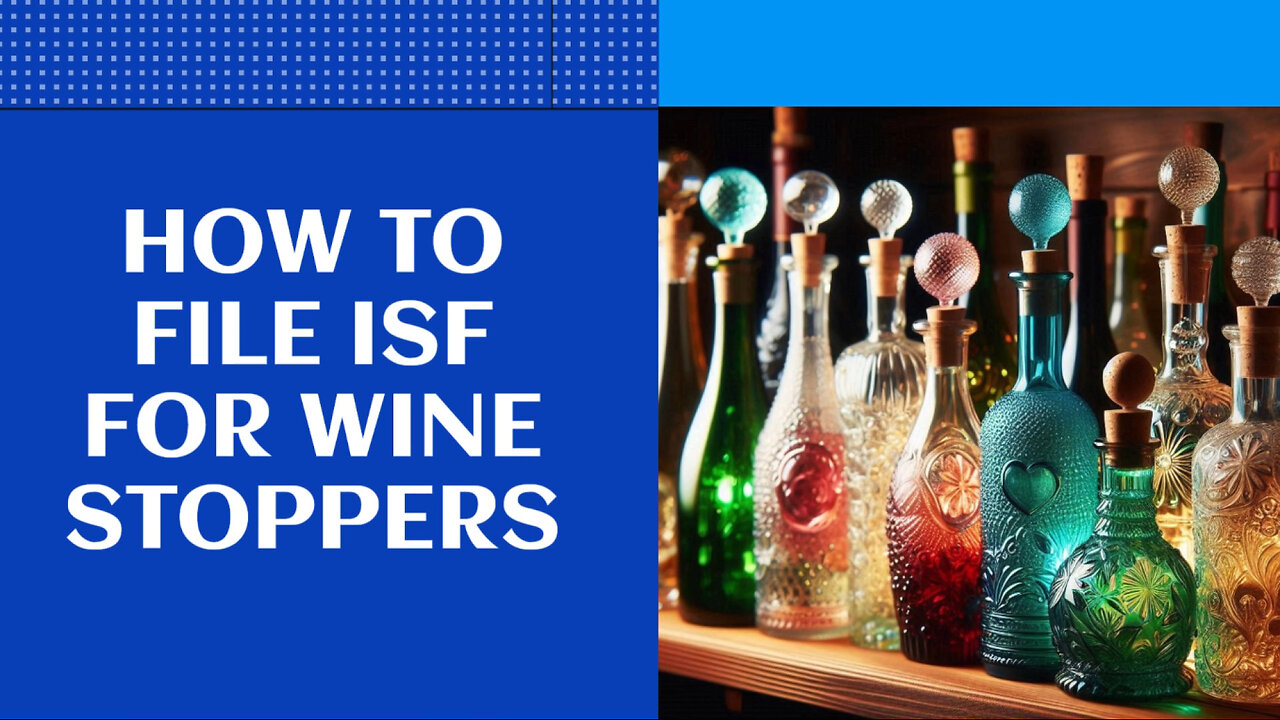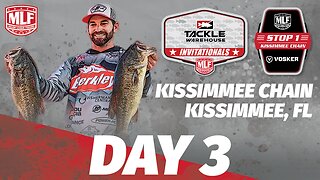Premium Only Content

Mastering ISF Filing for Wine Stoppers: Smooth Customs Brokerage Experience
- ISF Expedite
- Phone: 760-406-1099
- Email: info@isfexpedite.com
- www.isfexpedite.com
This response provides a deep dive into the concept of Importer Security Filing (ISF) for wine stoppers. It explains the importance of ISF and the steps involved in filing it accurately. The response also discusses the correct classification of wine stoppers using the Harmonized System (HS) code and the significance of gathering the necessary information for the ISF filing. Furthermore, it explores two options for filing ISF - self-filing through the ACE portal or working with a licensed customs broker. The potential penalties for non-compliance with ISF requirements are also emphasized. In addition, the response touches upon the requirement of obtaining a customs bond and explains the differences between a Single Entry Bond (SEB) and a Continuous Bond. It concludes by emphasizing the significance of accurately filing ISF and fulfilling financial obligations as an importer.
#usimportbond #isfcustomsbroker #uscustomsclearing #isfentry
Video Disclaimer Here: This is an educational video, no affiliation with any US government agencies.
0:20 - The Importer Security Filing (ISF) is a mandatory requirement by U.S. Customs and Border Protection (CBP) for containerized cargo, including wine stoppers. Importers must provide specific cargo information before shipment loading to enhance national security and ensure efficient processing.
1:11 - Properly classify wine stoppers using the Harmonized System (HS) code and gather necessary details for ISF filing, such as seller and buyer information, country of origin, and arrival port. Importers can file ISFs themselves via the ACE portal or hire a licensed customs broker for assistance.
2:21 - Importers of wine stoppers should consider obtaining a customs bond, which serves as a financial guarantee to fulfill import responsibilities. Choose between a Single Entry Bond for one-time imports or a Continuous Bond for frequent shipments, depending on import frequency and volume.
-
 48:02
48:02
Survive History
9 hours ago $1.67 earnedCould You Survive as a Sharpshooter in the Napoleonic Wars?
21.1K2 -
 12:03
12:03
Space Ice
10 hours agoSteven Seagal's China Salesman - Mike Tyson Knocks Him Out - Worst Movie Ever
13.4K14 -
 11:37
11:37
Degenerate Jay
9 hours ago $1.60 earnedJames Bond Needs Quality Over Quantity From Amazon
12.5K2 -
 15:23
15:23
Misha Petrov
10 hours agoTrad Wives & Girl Bosses Go to WAR!
14K32 -
 2:03:11
2:03:11
TheDozenPodcast
8 hours agoFootball villain fighting the state: Joey Barton
15.4K -
 LIVE
LIVE
Scottish Viking Gaming
11 hours ago💚Rumble :|: Sunday Funday :|: Smash the Blerps and Vape the Terpes
556 watching -
 1:45:00
1:45:00
RG_GerkClan
12 hours ago🔴LIVE Sunday Special - It's Time for World Domination - Civilization VII - Gerk Clan
66.1K27 -
 LIVE
LIVE
Major League Fishing
4 days agoLIVE Tackle Warehouse Invitationals, Stop 1, Day 3
168 watching -
 23:34
23:34
marcushouse
13 hours ago $17.90 earnedBREAKING: Starship Launch IMMINENT – But What’s This SURPRISE Flight 9 Plan?! 🚀🔥
110K11 -
 8:43
8:43
Film Threat
1 day agoTHE MONKEY | Film Threat Reviews
99.7K3